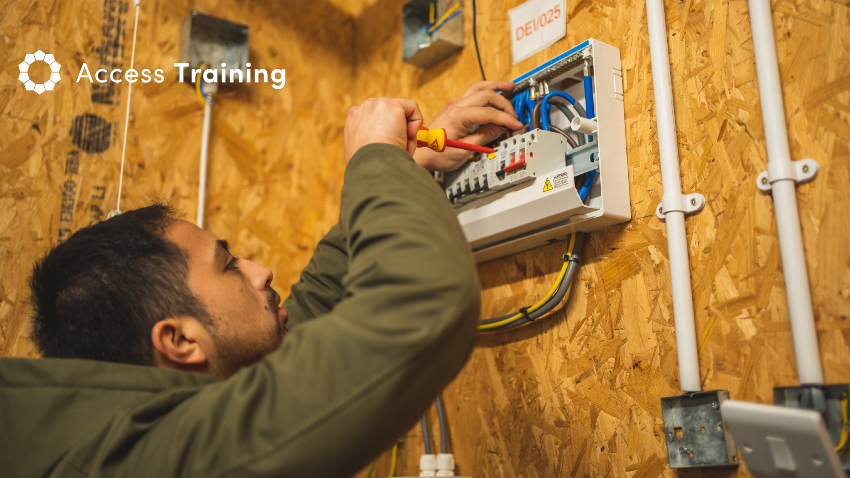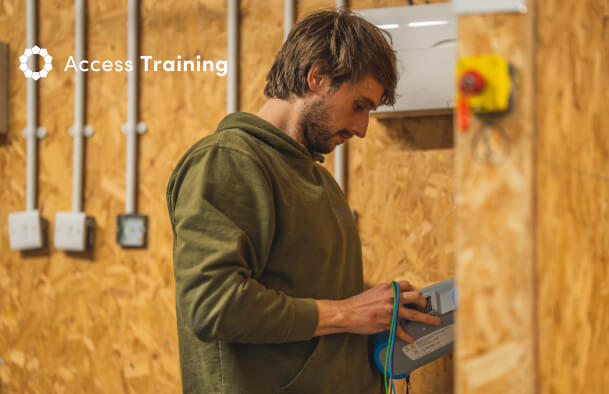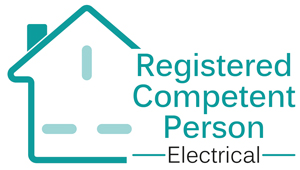
The UK's job market for skilled electricians is on the rise. With a predicted shortage of 104,000 electricians by 2032 and average salaries soaring above £39,000, choosing a career in this field is like flipping the switch on your long-term financial security.
More...

A 2022 survey of nationwide search data, found that the UK cities where electricians are most in demand (in terms of monthly searches) were:
- Worcester – 2,088 monthly searches
- Bedford – 1,723 monthly searches
- Preston – 1,783 monthly searches
- Lincoln – 1,696 monthly searches
- Colchester – 2,149 monthly searches
Qualified electricians are sorely needed in all parts of the UK, but, according to recent data, demand is particularly high in places like Worcester and Bedford.
This could be due to a number of factors, including an increasing number of new buildings being constructed, the need to upgrade old electrical infrastructure in domestic and commercial properties, and the growing popularity of electric vehicles.
Because of the many ways that our world is constantly changing, there is always a demand for electricians. This, in turn, creates plenty of job opportunities for electricians, making it a reliable and highly rewarding career choice.
Where can I train to be an electrician?
If you’re thinking about training as an electrician, now is a great time to do it. Here at Access Training, we provide several electrical training courses and our training centres can be found all over the UK, including the Midlands (1 hour drive from Worcester), Hertfordshire (around 1 hour drive from Bedford) and Manchester (just over an hour away from Preston).
Find your closest Access Training centre here, or get in touch to discuss your training requirements with one of our course advisors.
Access Training UK Training Centres
Our courses are designed to meet the needs of both beginner and experienced electricians and our training centres have everything you need to give you the skills you need to prepare you for a career as an electrician.
The courses cover a wide range of topics, including electrical installation, electrical theory, and electrical safety. We also offer a number of support services to our students, including career advice and help with finding work placements.
If you are interested in training as an electrician in the UK, Access Training is the perfect place to start. Speak to our course advisors today to learn more about courses and training options.
Some additional benefits of training as an electrician with Access Training include:
- Working on a variety of projects, from small domestic repairs to large commercial installations
- Working with cutting-edge technology
- Being part of a growing and in-demand industry
- Setting yourself up to work in a safe and sustainable field
If you're considering a career change or starting out on your journey in the trades, enquire today, Access Training can help.
Electrician Courses UK Training Centres
Learn your trade. Get qualified. Make it happen.

On Thursday 13th July, Access hosted their latest Open Day in Cardiff. From 10:00 - 13:00, over 70 attendees made their way through the doors of our Cardiff Centre. The day promised exciting taster sessions in Electrics, Plumbing, Carpentry, Gas and Plastering, allowing for prospective students to see first-hand what they could learn on the trades courses and speak to our tutors.
More...

Who earns more, electricians or plumbers?
On average, it would appear that electricians earn slightly more than plumbers, but both earn a significant annual salary. The average annual salary of an electrician in the UK is £36,134. The average annual salary of a plumber in the UK is £33,836.
More...
First thing’s first: anybody can be an electrician, with previous experience or not. In reality, there are only a few important things you need:
- Theory and practical training preparing you for exams and career
- Industry recognised qualifications from an accredited awarding body (such as EAL or City & Guilds).
- A good work ethic, and a commitment to working in the trade industry.
There are a couple of ways you can gain the training and qualifications to start your career as an electrician. You will need to choose the option that both suits your lifestyle and provides you the best outcome. The two most common are:
- This takes 2-4 years to complete, typically involving large classes and infrequent training.
- Poor starting wage.
- Good experience gained working with professionals for a long period of time.
- Private academies involve professional tuition in small, focused groups.
- Amount of time training is the same as apprenticeship, but is condensed to full time or flexible courses so people can work at the same time as training.
- Courses last from 2 weeks to several months depending on the qualifications being obtained.
- Experience needs to be gained quickly and confidently .
- Great starting wages as qualifications have already been earnt.
Access Training is a private training company which offers the training courses necessary to become a qualified electrician. It gives you the necessary qualifications, and a leg-up into the electrical industry, providing you with essential experience, skill, and qualifications. Speak to our career support team today to explore all the options available.
READ MORE: How to Become an Electrician
Here’s a breakdown of what Access Training can offer anybody starting out on an electrical career, or already experienced in the field, wanting to add a string to your bow. Our courses range between the following:
- Essential - Offering the essential skills and qualifications necessary to becoming a domestic electrician; this course is the base layer requirement for getting you out and working in domestic environments.
- Professional - For those serious about going far in an electrical career, this course builds on the qualifications on offer; for wider career options, greater skill-set, and more work opportunities, choose this course.
- Premier - This course will give you everything you could possibly need out of an electrical career; not only will you be a fully qualified and desirable employee, but you will also have the means to work for yourself, and be your own boss.
How training works:

With the right mindset, all you need to do is pick the right course for you, sign up, and our tutors will take care of the rest.
Learn your trade. Get qualified. Make it happen.

Here at Access Training, we constantly stress the importance of safe electrical practice in the workplace, but this unfortunate incident really brings it home!
On the 12th of April 2017, two demolition workers were tasked with removing electrical distribution equipment from a switchgear room at the Molecular Products site in Essex. The principal contractor had told the men that the electrical equipment they were dealing with had been fully isolated.
Foolishly, one man attempted to 'reassure his colleague' that the electricals had in fact been isolated by throwing a metal crowbar at the 400v ac equipment.
Unfortunately, when the crowbar came into contact with the live electricals it created a flashover (explosion) at temperatures of several thousand degrees which led immediately to quite a devastating fire. The man who through the crowbar, Mr Banks, suffered serious burns and was taken into hospital.
HSE investigated this incident and found that the task had not been properly planned at that suitable control measures hadn't been put in place. The principal contractor had failed to follow the procedures stating that all electrical equipment should be treated as live until properly checked and confirmed to be isolated.
The Consequences:
- Mr Banks sustained horrific burns & injuries
- Russel Haigh and Stuart Haigh pled guilty to breaching Regulation 3 of the Electricity at Work Regulations Act 1989 and we both fined £80,000
- AJ Wadhams & Co Ltd pled guilty to breaching section of the Health and Safety at Work etc Act 197 and was fined £80,000
HSE inspector Adam Hills said:
“This incident has had a significant impact on Mr Banks life and the injuries could so very easily have been fatal. Had the companies followed the control measures outlined in their respective risk assessments, then this incident would not have occurred. Never assume that an electrical supply is disconnected. Always check with the distribution network operator or a qualified electrician to obtain written proof of isolation before commencing work.”
Read more about this incident here >
Electrical Training
If there's one thing to take away from this, it's that working with electricals can be incredibly dangerous (and costly) if something goes wrong. That's why we can't stress enough how important it is that you receive the proper electrical training before carrying out this kind of work!
Here at Access Training Academies, we offer electrical training for students of all ages and abilities. If you're interested in pursuing a career in electrical work, come and learn the necessary skills and practices at one of our training centres.
View Our Electrical Courses >
If you have any questions about our electrical courses, or to arrange a visit to one of our test centres, please don't hesitate to get in touch. You can call us on 0800 345 7492 or email us at info@accesstraininguk.co.uk.

After much deliberation on what can be done to ensure consumers are hiring safe and qualified tradespeople to carry out work in their homes, the Select Committee on Building Regulations has announced that a single Competent Person Electrical Register is ready to go live. The decision was made following a recommendation made by the Communities and Local Government Select Committee, with the register set to officially go live on June 30th.
Is it mandatory to join the competent person electrical register?
This marks a similar move to the long-standing Gas Safe Register, joining which is a legal requirement of all gas engineers operating in the United Kingdom. However, joining the Competent Person Electrical Register is not mandatory, making it similar to the plumbing equivalent Water Safe. The move to create a single register was welcomed by existing Competent Person Scheme brands ELECSA and NICEIC. Although both put forward positive recommendations and supported parts of the report, they also felt some points were not explored thoroughly and "did not reflect the true state of the industry".
Under building regulations Part P, all fixed domestic electrical installations must be suitably installed, tested and inspected to ensure that they are in safe working order. Without achieving a Part P certificate and joining a Competent Person scheme, electricians are required by law to have their work independently verified by an external inspector.
When the scheme (full name: Registered Competent Person Electrical) goes live on June 30th, all full scope Part P electricians in England and Wales will be added automatically by their provider and encouraged to use the logo as a symbol of their qualification. An official launch event will then follow on the 2nd of July in the Palace of Westminster. Minister for Communities and Local Government, Stephen Williams MP, will give a keynote speech to a wide array of key industry stakeholders and MPs, alongside NAPIT Group Chief Executive Officer, Michael Andrews and Chief Executive Officer of Certsure, Emma Clancy.
Clancy commented that the new website will "become the one stop shop for consumers looking to hire an electrician to carry out work in their home."
Attaining a Part P certificate and joining a Competent Person Scheme is a vital part of becoming a domestic electrician, and something we can fully prepare you for here at Access Training.
Whether its part of a more intensive electrician course or the single qualification you're looking for, our experienced tutors will guide you through everything you need to know to reach this important step in your career. To speak to one of our course advisers and find out more give us a call on 0800 345 7492.
Every so often its good for this blog to break away for the wealth of industry news going on in the world, and there's never a better reason for it than to share our own students' success stories. Today we've got some REALLY good news to share, as we congratulate last month's electrician students on completing their 2395 Electrical Inspection and Testing courses with a 100% pass rate!
The City & Guilds 2395 Periodic Inspection & Testing is renowned for being a notoriously difficult qualification to achieve. It is aimed at experienced electricians (and thus there are specific criteria candidates need to meet before they can even attempt the exam) who wish to gain further knowledge in the inspection, testing and certification of electrical installations. The assessment itself consists of the following three parts;
- A multi-choice online exam
- A closed book written exam
- A practical exam
Upon successful completion, candidates will be able to complete the Electrical Condition Installation Report. However the difficulty of the course is reflected in the pass rate, with the last Chief Examiner's Report (dated December 2013) showing a national pass rate of 47%. Nevertheless, Access Training has remained confident in its ability to deliver the test, promising candidates that against the odds they too will be able to gain this highly sought after qualification. And our results for February prove that we weren't wrong.
100% of our entrants passed the exam last month, and our sister centre The Plumbing Academy wasn't far behind with four out of five of their candidates also achieving this prestigious qualification. Very few, if any, centres have achieved such pass rates in the past, collectively making Access Training Academies among the top training centres in the country for this qualification. But this isn't our success - a huge congratulations to all our successful students and all the best with your new qualification and career prospects.
Centre manager Tony Maus said, "When you compare the national pass rate with our own in both centres the results just speak for themselves. This is fantastic news and well done to all our successful candidates. They've earned it."
If you're an experienced electrician looking to further their career and skillset, have you thought about giving the 2395 qualification a go yourself? At Access we are determined to maintain this excellent pass rate well into the future and look forward to you being a part of it, so give us a call on 0800 345 7492 to find out more.